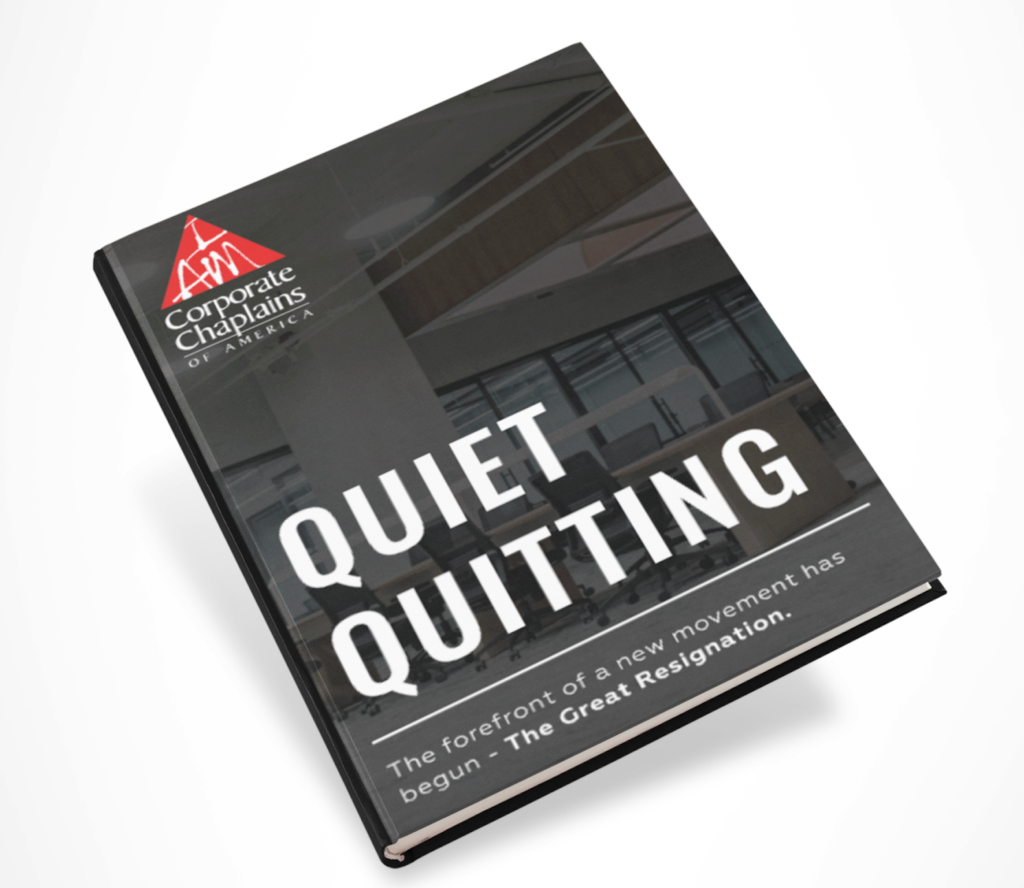By Charles Swindoll
Several years ago the National Anxiety Center in Maplewood, New Jersey, released the “Top Ten Anxieties for the 1990s.” The list included AIDS, drug abuse, nuclear waste, famine, and the federal deficit. Since then, in the light of September 11, 2001, the center has revised its list to put “global terrorism” as the leading source of anxiety. Today, we could add the worries of a full-scale war, the threat of nuclear attack from North Korea or China, the risk of losing a good job, and maybe the disquieting thoughts of growing old alone and unwanted.
We all have different lists, but our deep, relentless worries carry a similar effect. They make us uneasy. They steal smiles from our faces. They cast dark shadows on our futures by spotlighting our shameful pasts. They pickpocket our peace and kidnap our joy.
What is anxiety?
Throughout my more than 40 years of pastoral ministry, whenever I’ve taught or spoken on the topic of anxiety, I’ve always highlighted the relevant counsel of the apostle Paul in his letter to the Philippians. Type the words worry or anxiety into the search engine of my heart, and Philippians 4 quickly flashes on my mind:
Rejoice in the Lord always; again I will say, rejoice! Let your gentle spirit be known to all men. The Lord is near. Be anxious for nothing, but in everything by prayer and supplication with thanksgiving let your requests be made known to God. And the peace of God, which surpasses all comprehension, will guard your hearts and minds in Christ Jesus (Phil. 4:4-7).
Reading this passage, we immediately discover a four-word command that could be rendered, literally, “Stop worrying about anything!” The word translated “anxious” comes from the Greek verb merimnao, meaning “to be divided or distracted.” In Latin the same word is translated anxius, which carries the added nuance of choking or strangling. The word also appears in German as wurgen, from which we derive our English word worry. The tough stuff of anxiety threatens to strangle the life out of us, leaving us asphyxiated by fear and gasping for hope.
Jesus used similar terms when He referred to worry in His parable of the sower in Mark 4. The Master Illustrator painted a picture in the minds of His listeners of a farmer sowing seed in four types of soil. In that parable He mentions a seed being sown among thorns. While doing so He underscores both the real nature and the destructive power of anxiety. Jesus said, “Other seed fell among the thorns, and the thorns came up and choked it, and it yielded no crop” (v. 7; emphasis added). Later, when the disciples asked Jesus about the meaning of the parable, He interrupted His own words. Regarding the seed sown among thorns, He explained, “These are the ones who have heard the word, but the worries of the world, and the deceitfulness of riches, and desires for other things enter in and choke the word, and it becomes unfruitful” (vv. 18-19).
The One planting the seed sowed the Word. Clearly the Sower would be Jesus and His teaching, but the reference would also include anyone sowing truth through teaching or preaching. The soil would be the hearts and minds of all who hear the truth as it is being sown. Anxiety sprouts like weeds and thorns, grows up around the truth of God’s Word, choking away the life and peace it can bring. In a graphic lesson, Jesus makes a direct connection between the devastating effects of anxiety and those of strangulation. It chokes us!
What anxiety does
I have my own definition for anxiety. Anxiety is the painful uneasiness of the mind that feeds on impending fears. In its mildest form we simply churn. In its most severe form we panic.
Why is anxiety so wrong and spiritually debilitating? Here are three statements that help answer that question:
- Anxiety highlights the human viewpoint and strangles the divine, so we become fearful. When we worry, we have such a high level of awareness of the human events surrounding us that God’s perspective gets choked out. Worry strangles the divine perspective from our daily living, which puts us on edge.
- Anxiety chokes our ability to distinguish the incidental from the essential, so we get distracted. In the midst of the worrisome details, we add endless fears, doubts, tasks, expectations, and pressures. Eventually we lose focus on what matters. We become distracted by incidentals and, at the same time, neglect the essentials. Fruitful people are usually relaxed people. Unproductive people, on the other hand, are tied up in knots, having allowed incidental worries to entangle their minds like a thorny vine.
- Anxiety siphons our joy and makes us judgmental rather than accepting of others, so we become negative. We become negative when worry wins the battle. Inevitably we take our anxiety out on others. Worry works like bad cholesterol, hardening the arteries of our spiritual hearts and clogging the flow of love and grace toward people.
When anxiety creeps in, filling our minds with fear, distraction, and bitterness, we must turn to the One who offers an unexplainable peace. Thankfully we’re not alone in this struggle. And neither were those closest to Jesus while He was on earth. There is one biblical scene where Jesus appears as a gentle and compassionate Teacher offering perspective and correction to a fretting friend.
A first-century portrait
The scene I have in mind is recorded in Luke 10. It is one of the most intimate vignettes from the life of Jesus. The setting is the home of three of our Lord’s closest friends—Martha, Mary, and Lazarus—who lived in the village of Bethany just outside Jerusalem.
Jesus chose their home as a place of refuge, an ideal retreat away from the strain and press of public ministry. It was here that He found safe harbor among people who accepted Him as He was, who were not overtly critical, and who didn’t have hidden agendas. When I read this story, I wonder to myself if Jesus lived on earth today, would He choose my home? Would your home be one of those places where He’d find relaxation and relief?
Let’s again allow the Scriptures to recast the poignant scene. Observe closely as these three unsuspecting individuals react to a visit from their famous friend and some of His weary and hungry disciples.
Now as they were traveling along, He entered a village; and a woman named Martha welcomed Him into her home. She had a sister called Mary, who was seated at the Lord’s feet, listening to His word. But Martha was distracted with all her preparations; and she came up to Him and said, “Lord, do You not care that my sister has left me to do all the serving alone? Then tell her to help me.” But the Lord answered and said to her, “Martha, Martha, you are worried and bothered about so many things; but only one thing is necessary, for Mary has chosen the good part, which shall not be taken away from her” (Luke 10:38-42).
Martha was delighted to see Jesus, to be sure, but when she did, she immediately realized she had a huge job on her hands. There was a meal to cook, a table to set, and guests to make comfortable. That required serious planning and efficient execution. No one can fault Martha for diligence.
Mary, however, saw things from a different perspective. Understanding the rarity of the moment of just being in His presence, she sat like a loyal lapdog basking in her Master’s shadow. She didn’t view the day as a project to tackle but as an intimate moment to enjoy. Nothing’s right or wrong about either temperament, unless they’re taken to the extreme. And that’s what Jesus confronted in Martha.
Luke’s story offers an eloquent study in contrasts. After Martha met Jesus at the door (Luke 10:38), she must have gone straight to work preparing the meal. We know that because Luke moves quickly to describe what Mary did. He writes, “She had a sister called Mary, who was seated at the Lord’s feet, listening to His word” (v.39).
When Jesus showed up unexpectedly, Mary chose to seize the moment, stop everything, and listen to His teaching. But Martha “was distracted with all her preparations” (v.40). In other words, Mary seized the opportunity, but Martha, anxious and distracted, missed it. Perhaps she couldn’t help herself. After all, she was likely the oldest. Not surprisingly, Martha is acting responsibly. Unfortunately she is so responsible that she gets everything else out of focus.
Martha reached her boiling point and in a moment of exasperation blurted, “Lord, do You not care that my sister has left me to do all the serving alone? Then tell her to help me” (v. 40).
I have a feeling she spoke those words to Jesus while frowning and glaring at her younger sister, Mary. Martha’s out-of-balance concerns over the meal preparations prevented her from focusing on Jesus. Because her anxiety had gotten the best of her, she missed a potentially life-altering encounter with the Savior. The stress she brought onto herself strangled her ability to relish Christ’s words and experience the quiet benefit of His presence.
I love how our Lord responds. He gently addressed her, “Martha, Martha.” He didn’t deliver a thundering lecture, wagging His finger in Martha’s face. He didn’t throw open the family Bible and shame her into reading ten verses aloud. None of that. I’m convinced He felt compassion for Martha. He could have even wrapped His strong arms around her and whispered, “You are worried and bothered about so many things; but only one thing is necessary, for Mary has chosen the good part, which shall not be taken away from her” (vv. 41-42).
Jesus pinpointed Martha’s trouble. She had allowed the anxiety of the moment to cloud her attitude and steal her joy. Often that twisted mindset shows up plain as day on our grimacing faces. I wonder if Martha’s body language betrayed her internal stress.
Mary had chosen a better way—the way of life and peace found at the feet of Jesus. For the rest of her life she would be able to remember those precious hours with her beloved Savior. Martha may have known only frustration and regret had not Jesus lovingly rebuked her.
The arithmetic of worry
After years of studying the tough stuff of anxiety (and yielding to it more times than I want to remember), I’ve distilled what I’ve learned about its destructive power into four practical principles. I’ll make them easy to remember by giving them to you in simple math—addition, subtraction, multiplication, and division.
- We worry when we add unnecessary pressure to an already full plate. Trying to meet everyone’s expectations adds unnecessary pressure.
- We worry when we subtract God’s presence from our crises. Adversity minus God’s presence equals doubt and fear.
- We worry when we multiply our problems by inserting our solutions prematurely. Anxiety grips us when we insist on finding our own way out of the tough stretches in life instead of walking with God through them.
- We worry when we divide life into the secular and the sacred. God doesn’t want to compartmentalize our lives. He wants every aspect to be under His control.
Before you do anything else, reflect on your list of worries. Take a good look through the current events of your life. What is it that has you anxious? Overcoming those anxious fears won’t be as easy as simply sitting in a church service or finding some magical Bible verse. You probably know that. The truth is, no matter what you are facing, worrying will do you more harm than good.
In The Message, Eugene Peterson captures Jesus’ words in today’s terms. Consider Peterson’s rendering of Matthew 6:34.
Give your entire attention to what God is doing right now, and don’t get worked up about what may or may not happen tomorrow. God will help you deal with whatever hard things come up when the time comes.
Worried about tomorrow? Getting strangled on anxieties that you can’t seem to dislodge? Feeling like Martha?
Relax. Stop fretting about tomorrow … or next week … or next month. God specializes in getting you through the tough stuff.
Excerpted from “Getting Through the Tough Stuff: It’s Always Something,” W Publishing Group. © 2004 Charles R. Swindoll. Used by permission.
Copyright © 2005 by the author or Christianity Today International/Today’s Christian magazine.
March/April 2005, Vol. 43, No. 2, 16




